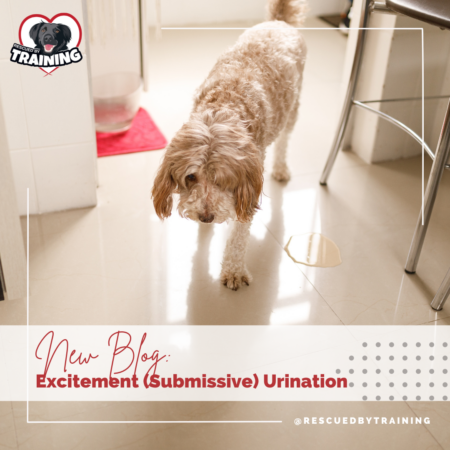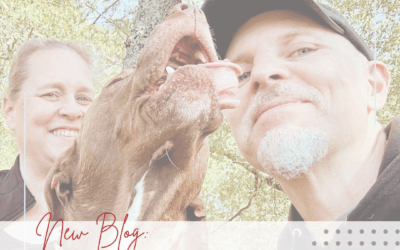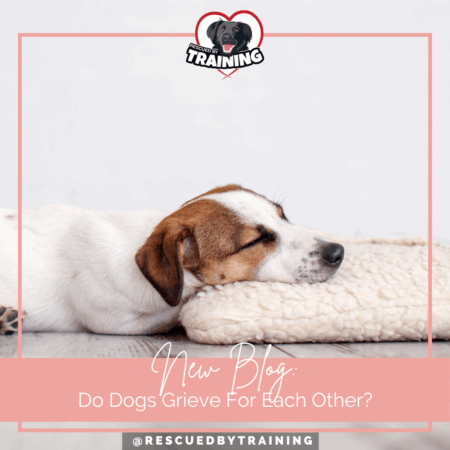Few things frustrate owners more than their dog pottying inside, whether they have a new puppy or a newly rescued adult dog. Housetraining issues can be super frustrating and really zap the joy out of having a new dog in your home. Nobody likes to clean up constant messes. But not all potty accidents are the same. I’ve covered normal housetraining basics here. And for fearful dogs and dogs who are afraid to go outside read this post.
Today’s post is about dogs who urinate when they’re excited, unsure or frightened. We call this conflict, submissive, appeasement or excitement urination and contrary to popular belief, this is not routine housetraining issue. Conflict (submissive, excitement or appeasement) urination is when the dog involuntarily urinates, often seen during greetings. I see it most often in puppies who are just soooo excited they just can’t control themselves and dribble a little when people visit. Many dogs outgrow it as they mature but others may never outgrow it.
What can trigger it?
- Staring directly in the dog’s eyes/making direct eye contact
- Leaning or hovering over the the dog
- High pitched, excited, happy greeting from the human to the dog
- Reaching towards the dog (as if to touch or pet them)
- Talking to them or otherwise paying attention to them
- Fast movements or suddenly appearing
In dogs where they’re a little unsure about interactions they may be urinating because they’re a little conflicted or frightened and it’s an act of appeasement, almost saying “I’m not a threat, please don’t hurt me.”
This type of urination is involuntary. The dog isn’t choosing to do it and it is critical that you never punish the dog for this behavior, or it will increase in frequency.
And no, your dog doesn’t look guilty or know that they did anything wrong. Any look that you’re reading into and interpreting as guilt is from a history of punishment and association that when people come home the dog gets yelled at or scolded or roughly handled and dragged outside.
Why punishment doesn’t work:
- Any punishment (which includes raising your voice, scolding, yelling, hitting, roughly handling/grabbing) will only increase any uncertainty/anxiety/appeasement that the dog has, thereby increasing the dog urinating more, trying to further appease you. This creates a vicious cycle. The dog urinates, the human gets angry, the dog gets more worried and pees more and the human gets more angry.
- Punishing can cause reverse housetraining, where the dog learns they get punished for going to the bathroom in front of people, so they learn to hold it and then sneak off to relieve themselves. This can even mean that on leash walks the dog will not potty because you are present walking them.
- Punishment deteriorates your relationship with your dog and in worst case scenarios, could even cause your dog to become fearful of people in general, causing more generalized fear, anxiety or aggression in other contexts.
What we do to help the dog? We use a combination of management and training.
- Avoiding common triggers is our first line of action. Instruct all visitors to ignore the dog and help avoid the trigger!
- For greetings, ignore the dog and avoid making eye contact, talking (especially high-pitched, excited talking), reaching, bending over, approaching or touching the dog.
- If the dog initiates an interaction, calmly say hello, smile or nod, but stay out of their space by not bending over or leaning toward them.
- Set predictable routines, schedules and interactions. This can help reduce anxiety.
- Do greetings outside, use belly bands, confinement areas or set up easy to clean areas (like a mudroom) for greetings while you’re working on training.
- Training to “change the dog’s channel” and train a different greeting routine like fetch a toy or cookie time. This way we work to change the dog’s channel from, people coming home means I need to appease them to people coming home means I get special cookies or it’s time to go get my toy and play!
- Some alternative behaviors: Find It, Fetch, Retrieve, or Go To Mat.
When is it time to go to the vet?
If your dog was perfectly housebroken and suddenly is having submissive urination accidents or is drinking more than they normally do then it’s time to get a vet check.
Let’s work together and help you and your dog succeed. You can schedule a session so we can get started!
Happy training!
![]()




